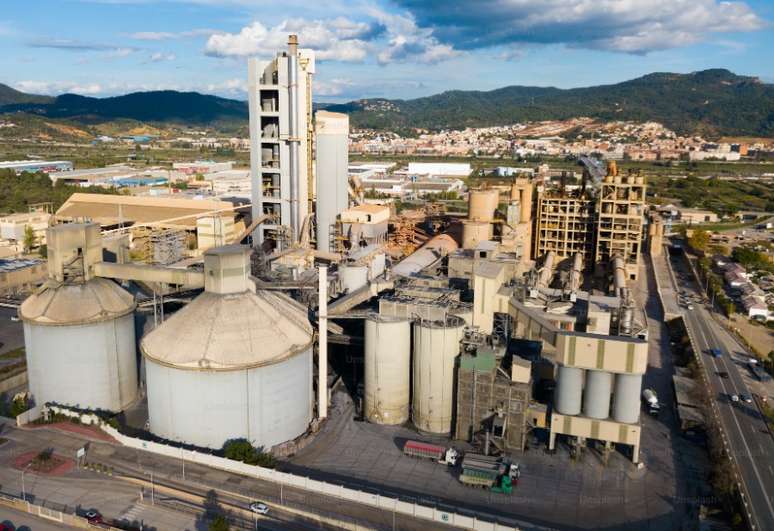According to a market expert, the performance of different sectors, such as agriculture, livestock and the cleaning industry, are some of the variables
The growing demand for chemicals in key sectors such as agriculture, livestock, animal feed, cleaning and the pharmaceutical industry, among many others, together with the continuous search for sustainable and environmentally friendly solutions, is stimulating innovation and investments in the chemical industry.
Data recently released by Conab (Companhia Nacional Abastecimento) show that soybean exports, from January to November 2023, remain high. Wheat shipments increased from 98.06 million tonnes to 100.03 million tonnes. For 2024, oilseed exports are estimated at 101.59 million tonnes. Although climate change affects the cultivation of many products, the market maintains confidence in businesses.
At an event recently held on “Agricultural prospects for 2024“, an initiative of the Instituto Desenvolvimento Pecuária, Alex Lopes, strategic director of Minerva Foods Brasil, said that the internal estimate for 2024 is that Brazil will increase meat consumption by 2.5% – predicting that the expected stabilization for next year it will anticipate the increase in the livestock cycle expected for 2025.
In the animal feed sector, projections of Rabobank for 2024 they indicate a recovery in fertilizer deliveries. The bank expects large growth in the organic market in 2024, with better sales performance than chemical pesticides. “We should expect a reduction in operating costs of the country’s main crops, especially those related to fertilization,” says Bruno Fonseca, the bank’s Inputs analyst.
Given the expectation of a stable 2024, it is worth underlining how much these prospects impact the national chemical industry. According to João César de Freitas, commercial director of Katrium Chemical Industries – the largest producer of caustic potash in Latin America – published analyzes show that the chemical industry faces several challenges.
According to Freitas, the largest consumer of caustic potash is the agricultural sector, which uses it in the production of agricultural pesticides and foliar fertilizers. “Caustic potash (potassium hydroxide) is an alkali similar to caustic soda, but is intended for more noble applications, where potassium adds a nutrient to the soil, in the case of agricultural applications. Electrolysis of salt generates potash, but also chlorine, hydrogen and hydrochloric acid – as well as sodium hypochlorite, which is based on chlorine”.
The animal feed industry employs dicalcium phosphate in food production for all species and stages of creation, being the noblest source of phosphorus used. “Phosphorus is the second macromineral with the highest concentrations in the animal organism, behind only calcium. Being very reactive, phosphorus does not exist as a free element, but in the form of phosphates – fundamental for the health of bone and dental structures, as well as perform numerous other metabolic functions. In other words, it is an essential mineral for animal life.”
As Brazil is one of the largest meat producers and exporters in the world, the national agricultural sector faces the challenge of continuously compensating for the deficiency of phosphorus in the soil and staple foods for feed production. “There is a synergy between various segments of the economy. From the farmer and rural producer, through the producer of fertilizers, agricultural pesticides, animal feed, up to the chemical industry – which provides products that are the basis of all the formulations mentioned “Therefore, any good or bad news from any of these segments has an impact on our industry,” says the Katrium executive.
Another growing sector that is expected to have a positive impact on the chemical industry in 2024 is cleaning. The advent of e-commerce platforms has made household cleaning products more accessible to consumers. The convenience of online shopping has contributed to the growth of the market. Furthermore, research indicate that consumers are more willing to spend on premium or specialty cleaning products, which offer additional benefits.
“Since the Covid-19 pandemic, the population has become aware of the relationship between hygiene and health. This has increased the sales of household cleaning products, as consumers are more aware of the importance of cleaning and disinfecting their living and working spaces. As hydrochloric acid/chlorine enters the composition of various products, the chemical industry ends up being affected by the fluctuations of the cleaning industry,” says Freitas.
According to Geraldo Alckmin, Vice President of the Republic and Minister of Development, Industry, Commerce and Services, the federal government strives to support and stimulate the chemical industry, which suffers the consequences of fluctuations in various sectors of the economy. “The first thing we did was to restore the previous import taxes, which returned to 11.2%. We also ended the 10% discount on the Mercosur common external tariff,” says the minister – recalling the focus on the resumption of the Reiq (Industrial regime for the chemical industry). “The return of the special regime improves the competitive conditions of a sector that generates 2 million direct and indirect jobs in the country and represents 11% of industrial GDP”.
Website: http://www.katrium.com.br
Source: Terra
Rose James is a Gossipify movie and series reviewer known for her in-depth analysis and unique perspective on the latest releases. With a background in film studies, she provides engaging and informative reviews, and keeps readers up to date with industry trends and emerging talents.







